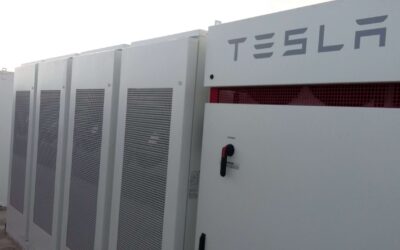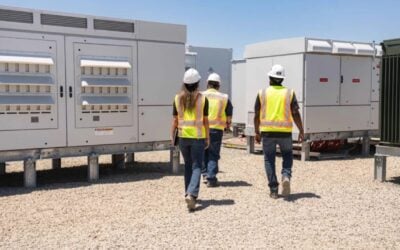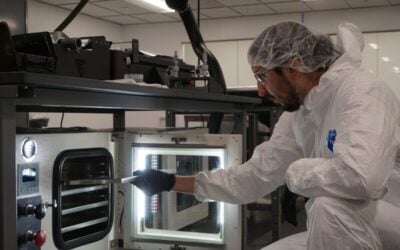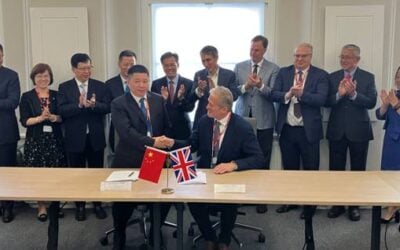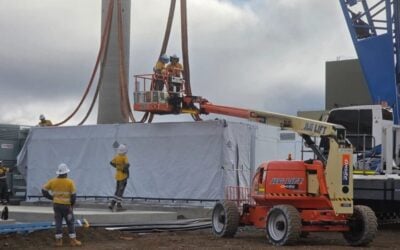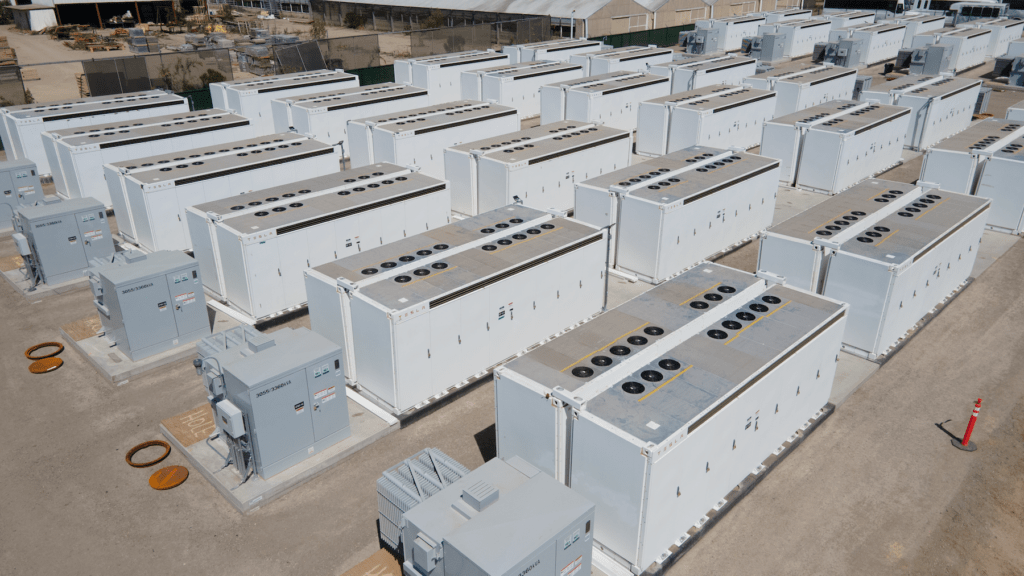
US renewable energy company Arevon has signed a master supply agreement for 2GW / 6GWh of Tesla’s Megapack battery energy storage systems (BESS).
Arevon is purchasing the Megapack all-in-one BESS solutions for use in the Falcon Portfolio, nine large-scale standalone battery storage projects in California which it is executing as a joint venture (JV) with independent power producer (IPP) Tenaska.
Enjoy 12 months of exclusive analysis
- Regular insight and analysis of the industry’s biggest developments
- In-depth interviews with the industry’s leading figures
- Annual digital subscription to the PV Tech Power journal
- Discounts on Solar Media’s portfolio of events, in-person and virtual
According to documents filed with the California Independent System Operator (CAISO), which oversees California’s grid network and wholesale electricity markets, the Falcon Portfolio could be brought online from summer 2022 and the following summer and all the projects involved are at an advanced stage of development.
Split across the service areas of California’s three main investor-owned utilities (IOUs), the BESS projects will provide up to four-hours of energy per day to meet Local Capacity Requirements (LCR). They can be charged with wind and solar from times of surplus renewable production which might otherwise be curtailed and go to waste, and — as has been seen with a number of other battery projects — replace the role of gas-fired generation.
Both the Falcon Portfolio JV with Tenaska and Tesla supply deal build on long-standing relationships for Arevon: Tenaska and Arevon have already worked together on solar projects around the US, including in the Midcontinent Independent System Operator (MISO) market while Tesla’s Megapacks are already in use or being deployed at several Arevon projects.
By the end of 2021, Arevon will have constructed and brought into operation 250MW / 1,000MWh of projects using Megapacks in California and Nevada. In California, one notable project brought online in June, is Saticoy, a standalone 100MW / 400MWh BESS which was developed and built using 142 3MWh Megapacks, after local community opposition to a new gas power plant.
Saticoy went online just nine months after construction began and supplies power to IOU Southern California Edison (SCE) through a 20-year power purchase agreement (PPA). Like a gas peaker plant, it provides energy to the grid when local demand for energy is at its highest. Unlike a peaker plant, it doesn’t cause local emissions or pollution and the fuel it uses is abundant solar or off-peak grid energy not subject to gas pricing fluctuation.
“Arevon is at the forefront of powering the energy transition through solar and storage resources. We are pleased to renew our relationship with Tesla, securing high-quality product that is in high demand,” Arevon chief operating officer Justin Johnson said.
“This agreement ensures that Arevon can deliver near-term storage solutions to our customers, mitigating the risk of supply shortages and project delays.”
ESS industry looking to beat battery supply crunch
With the growth in demand for lithium-ion batteries from the stationary energy storage sector as well as the much bigger electric vehicle (EV) industry, BESS developers are brokering this kind of master supply agreement to ensure their projects can come in on time.
There is starting to be some diversification from battery cell manufacturers, with bespoke cells aimed at the stationary storage industry — rather than using the same cells as EVs — expected to become more common in the coming years, as we heard from McKinsey & Co experts in an Energy-Storage.news webinar a couple of weeks ago on battery costs.
Also, as Saticoy shows, battery storage can be built and connected to the grid quickly, but project developers and technology providers could still be at the mercy of supply chain issues.
Energy-Storage.news reported in September on a 200MW / 800MWh supply deal between South Korean battery and BESS equipment manufacturer LG Energy Solution and European utility RWE for two solar-plus-storage projects in the US.
In August, US-headquartered energy storage system manufacturer Powin Energy signed a “gigawatt-scale” supply deal for lithium iron phosphate (LFP) cells from Chinese company EVE Energy, including 500MWh for projects set to be energised this year. That deal builds on an existing master supply agreement Powin has in place with major Chinese LFP manufacturer CATL.
Arevon was recently spun out of asset management firm Capital Dynamics to be its own entity, with backing from institutional investors including California State Teachers’ Retirement System (CalSTRS) and a wholly owned subsidiary of the Abu Dhabi Investment Authority (ADIA).
Its other projects in development include California Flats BESS, a 60MW / 240MWh BESS retrofit at an existing 280MWac solar PV plant for which the off-taker is Apple.
The renewables platform company has total assets valued at US$12 billion and launched with a portfolio of 4.5GW solar and battery storage projects in operation, under construction and in late-stage development, as well as a further 3GW pipeline of earlier stage projects. It also provides asset management and financial and other services to several gigawatts more facilities.
In a recent interview with our sister site PV Tech, Arevon Energy CEO John Breckenridge said that many of his company’s competitive strengths lie with the scale of procurement, operations and construction and off-taker relationships it is capable of.
“Size, scale and vertical integration,” Breckenridge said, are “the only way to succeed in this sector at the moment”.

